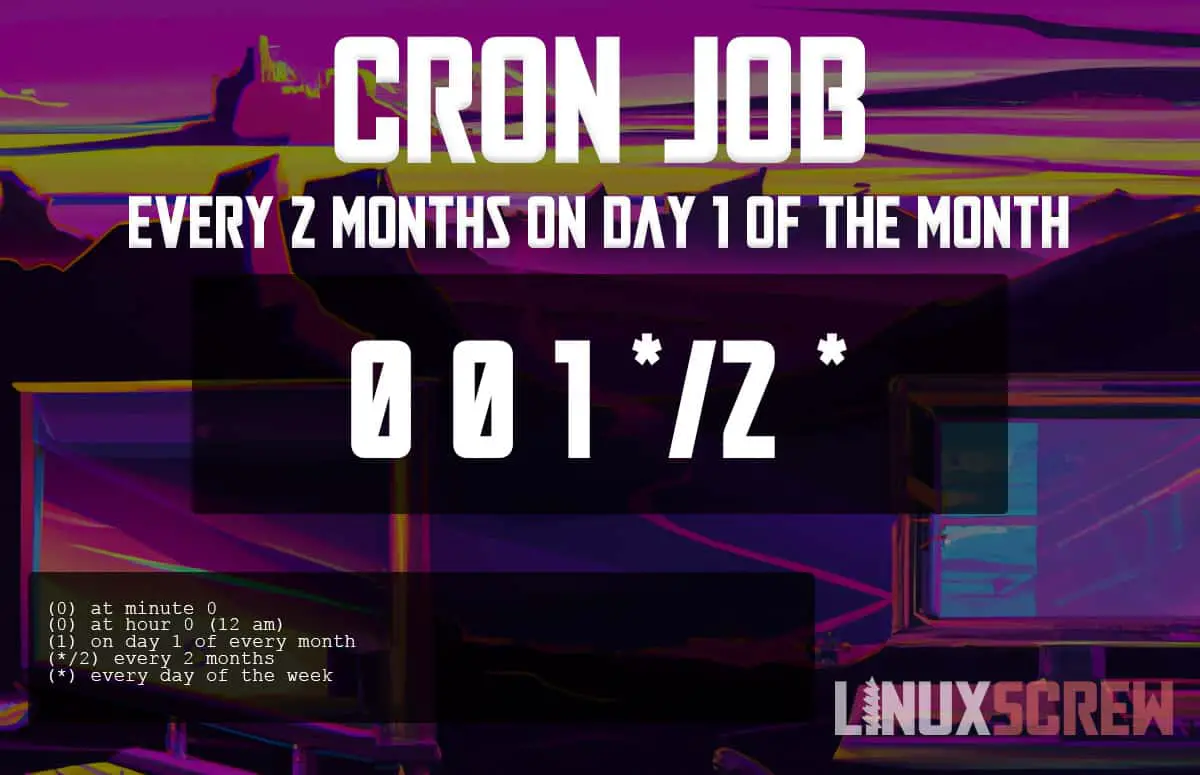This page will help you quickly and easily set up a cron job to run every 2 months on day 1 of the month.
The Cron Job/Crontab
To have your task run at this frequency, use the following cron:
0 0 1 */2 *
This cron command translates to the following (in Human-Readable format):
“Every 2 months on day 1 of the month.”
What is a Cron Job & Crontab?
A cron job is a task that is scheduled to run at a specific time or interval. Cron is a Linux utility that enables users to schedule tasks to be executed automatically at a specified time or interval. A cron job is typically used to automate system maintenance or administration tasks, such as running backups or sending emails.
Crontab files are typically stored in the /etc/crontab file, but they can also be stored in individual user’s home directories. To edit your own crontab file, you can use the command “crontab -e”. This will open up the file in your default text editor.
Cron Fields
Every cron job uses five fields. Here is an explanation of what each field does in this cron, which runs “every 2 months on day 1 of the month“:
FUN FACT: If you need to delete a cron job, simply remove the corresponding line from the crontab file and save your changes..
Use Cases
You might want to set up a crontab or cron job to run every 2 months on day 1 of the month for several reasons, including:
- To delete old log files that are no longer needed
- To generate reports on the first day of every other month
- To send out reminders for upcoming events
Similar Cron Jobs
You might also want to run a crontab:
- every 3 months
- every 6 months
- every 5 months
- every 1 month
- every 2 months
- every 4 months
- every 2 months on day 15 of the month
- every 3 months on day 11 of the month
- every 4 months on day 6 of the month
FUN FACT: If you want to edit your personal crontab, just type: “crontab -e” at the command prompt..
Wrapping Up
In this article, you learned how to set up a cron job that runs every 2 months on day 1 of the month. Please share this page with friends and colleagues if you find it useful.
If you have any questions, please don’t hesitate to comment below.
If you are looking for cron jobs that run at certain minutes, hours, days, weekdays, or months, or if you are looking for miscellaneous cron jobs, then check out our relevant sections, or visit our cron job cheat sheet for a list of hundreds of popular cron jobs.

